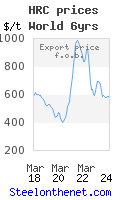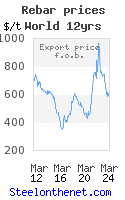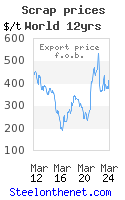Arch & Massey say rail woes hurt coal profits [BlackDiamond]
NEW YORK, July 15 (Reuters) - Two major U.S. coal producers warned on Friday that full-year profits would be hurt as a result of rail delivery disruptions that could further increase the danger of shortages at U.S. power stations.
Arch Coal Inc. said it expects earnings for the year to fall as much as 60 percent below Wall Street estimates, while rival Massey Energy Co. told Reuters the effects of domestic rail woes would have an impact on its profits.
"We believe the impact will prove much greater than anticipated," Morgan Stanley analyst Wayne Atwell wrote in a note released after Arch's warning. "We expect Arch shares to trade down short-term. In addition, the shares of other coal producers, particularly those with PRB (Powder River Basin) exposure, are likely to be affected as well."
"We know demand for capacity remains high and where specific capacity issues are raised we're doing everything we can," said Bob Fort, a spokesman for the Norfolk Southern Corp.
St Louis-based Arch, which mines two-thirds of its coal in the Powder River Basin of Wyoming and Montana, said track work following derailments had already curtailed shipments. "Coupled with continuing poor performance by the eastern railroads, these disruptions could lead to significant challenges for U.S. power plants," Chief Executive Officer Steven Leer said.
"We are likely to see a rapid draw-down of power plant stockpiles, particularly if current above-average temperatures persist." Utility stockpiles at the end of June were already about 15 percent below the five-year average, according to Arch estimates.
The company said rail problems reduced shipments by 4 million tons during the second quarter, and rail problems in general reduced net income by 35 cents a share.
Spokesman Deck Slone told Reuters that 2 million tons of the shortfall in shipments was left in the ground as pit inventories had grown while coal piled up awaiting shipment.
But the company had not laid off miners, he said, they were still working regular shifts, producing less coal and working on other activities, like land reclamation and maintenance.
Richmond, Virginia-based Massey said the difficulties with railroads looked certain to hurt its bottom line in the long term. "I don't think the quarter is so much the issue so much as the full year," said spokeswoman Katharine Kenny. "It affected us last year and it seems likely that there certainly will be some impact this year."
She said Massey has no operations in the West, and mines coal the central Appalachian area, mostly in West Virginia and eastern Kentucky. But she said rail delays in the West could potentially benefit Massey, since more utilities in the East that use primarily PRB coal are experimenting with blending Appalachian coal with the western supplies.
Heavy rains buckled tracks in the Powder River Basin area in northeast Wyoming and southern Montana earlier this year, and repairs are expected to take the rest of 2005.
Government statistics show cooling degree days, a measure of departure in the mean daily temperature from 65 degrees Fahrenheit, used to reflect energy demand, are 35 more than normal.
As a result of the current coal shortages and expected high usage rates due to the heat, Arch expects unprecedented coal demand in 2006 as utilities rebuild stockpiles.
Two utilities owned by Xcel Energy Inc. said they have already been forced to buy more electricity from third parties and fire more generating facilities with natural gas because of coal shortages. They warned of higher customer prices as a result.
Coal fires about half the electricity generated in the United States, according to the Edison Electric Institute. Arch fuels about 7 percent of electricity generated in the country.
Arch Coal Inc. said it expects earnings for the year to fall as much as 60 percent below Wall Street estimates, while rival Massey Energy Co. told Reuters the effects of domestic rail woes would have an impact on its profits.
"We believe the impact will prove much greater than anticipated," Morgan Stanley analyst Wayne Atwell wrote in a note released after Arch's warning. "We expect Arch shares to trade down short-term. In addition, the shares of other coal producers, particularly those with PRB (Powder River Basin) exposure, are likely to be affected as well."
"We know demand for capacity remains high and where specific capacity issues are raised we're doing everything we can," said Bob Fort, a spokesman for the Norfolk Southern Corp.
St Louis-based Arch, which mines two-thirds of its coal in the Powder River Basin of Wyoming and Montana, said track work following derailments had already curtailed shipments. "Coupled with continuing poor performance by the eastern railroads, these disruptions could lead to significant challenges for U.S. power plants," Chief Executive Officer Steven Leer said.
"We are likely to see a rapid draw-down of power plant stockpiles, particularly if current above-average temperatures persist." Utility stockpiles at the end of June were already about 15 percent below the five-year average, according to Arch estimates.
The company said rail problems reduced shipments by 4 million tons during the second quarter, and rail problems in general reduced net income by 35 cents a share.
Spokesman Deck Slone told Reuters that 2 million tons of the shortfall in shipments was left in the ground as pit inventories had grown while coal piled up awaiting shipment.
But the company had not laid off miners, he said, they were still working regular shifts, producing less coal and working on other activities, like land reclamation and maintenance.
Richmond, Virginia-based Massey said the difficulties with railroads looked certain to hurt its bottom line in the long term. "I don't think the quarter is so much the issue so much as the full year," said spokeswoman Katharine Kenny. "It affected us last year and it seems likely that there certainly will be some impact this year."
She said Massey has no operations in the West, and mines coal the central Appalachian area, mostly in West Virginia and eastern Kentucky. But she said rail delays in the West could potentially benefit Massey, since more utilities in the East that use primarily PRB coal are experimenting with blending Appalachian coal with the western supplies.
Heavy rains buckled tracks in the Powder River Basin area in northeast Wyoming and southern Montana earlier this year, and repairs are expected to take the rest of 2005.
Government statistics show cooling degree days, a measure of departure in the mean daily temperature from 65 degrees Fahrenheit, used to reflect energy demand, are 35 more than normal.
As a result of the current coal shortages and expected high usage rates due to the heat, Arch expects unprecedented coal demand in 2006 as utilities rebuild stockpiles.
Two utilities owned by Xcel Energy Inc. said they have already been forced to buy more electricity from third parties and fire more generating facilities with natural gas because of coal shortages. They warned of higher customer prices as a result.
Coal fires about half the electricity generated in the United States, according to the Edison Electric Institute. Arch fuels about 7 percent of electricity generated in the country.




0 Comments:
Post a Comment
<< Home